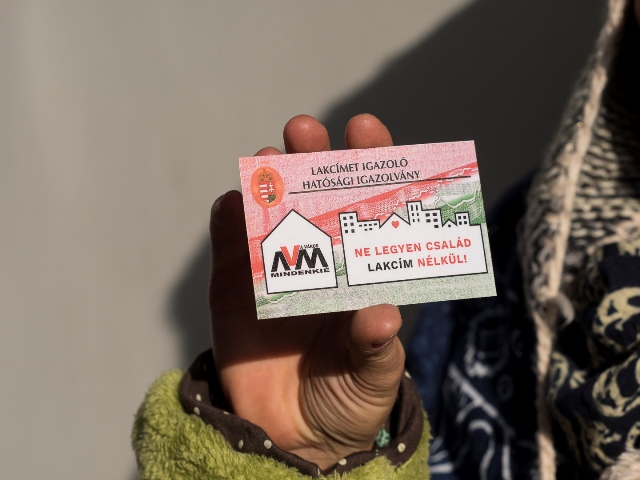In just the past two years, 10,000 more people were added to the list of those who have useless addresses. The City is For All has requested information from the Interior Ministry about the number of people with problematic addresses, which exacerbates their uncertain living circumstances or hinders their ability to receive much-needed social and other services. In our last article, we presented data from 2015, and the situation has considerably worsened since then.

Currently, there are 70,808 Hungarians without a valid permanent address
While two years ago, there were „only” 63,660 people without valid permanent addresses the situation has worsened considerably. The number of children without a valid address has grown as well: there are 4,838 of them affected by this problem.
41% of those without a currently valid address had their last registered address in Budapest, followed by smaller percentages in larger cities like Miskolc, Debrecen, Pécs and Szeged. There is a notable spike in the number of people whose last registered address was in Bicske, where they presumably were placed on record at the refugee camp but weren’t able to register elsewhere since.
Multiple and various factors can the cause for someone not to have a valid address. Most often, someone’s address has been voided, which means that the landlord cancelled the old address and the person was unable to register elsewhere. Not having a valid address means that a person is essentially unable to partake in their civil rights that are tied to an address (e.g. voting, social services, schools, health care) and due to that, children are in even greater danger. For the longest time now, we have been reporting about this concern to the Ministry of Human Capacities, but they don’t seem to be able to develop a solution to the problem.
23,865 people in Hungary have only a township/district address – 6,728 of them are registered in one of Budapest’s districts.
Two years ago, this number was lower by around a thousand: at that time, 22,624 people had essentially useless addresses.
While township/district addresses are lawful and in theory have a full value, those with these restricted addresses have to face discrimination on multiple levels: they’re unable to by cell phone SIM cards and have difficulty opening a bank account or finding a job. It is not always the case that many with these types of addresses are homeless. Many people are unable to register at the address where they live and thus are unable to establish even a township/district level address. It is especially startling that 1,453 minors have these types of addresses, even though that is illegal and should be intolerable by the current law and its ordinance.
5,818 people in Hungary only have a temporary address
Two years ago, this number was somewhat higher at 6,377, yet this is scarcely an improvement.
Having only a temporary address often counts as an invalid address when it comes to partaking in services and benefits that require a permanent residence (e.g. cell phone SIM cards, opening a bank account). Social Services treats those without a permanent address as if they were foreigners, and as such, they fail to qualify for subsidized healthcare and other social programs. Homeless people fall into a different category: they are eligible for social security benefits as they have no permanent address.
The City is For All and the StreetLawyer stand for resolving these issues by giving everyone the right to register at a permanent address. To achieve this, the government and its departments must take the following steps:
1. Administrative offices in townships and districts should be required to uphold the law by allowing tenants to register their address as permanent. As per our current laws, to permanently register at an address, a tenant needs to have a formal lease agreement signed by two witnesses or an attorney while a separate agreement from the landlord is not required.
2. Just as homeless institutions are mandated, transitional housing and workers’ shelters should be required by law to register their residents after 10 days of residence.
3. Laws should be established to mandate property management companies and landlords to give tenants the right to register their rental addresses as permanent addresses.
4. Regulations should be established to allow homeless people to register at the social institutions they use (e.g. drop-in centers).
5. Statues pertaining to children and families need to be amended so that social workers can declare their clients’ real home if they don’t have a permanent address.
